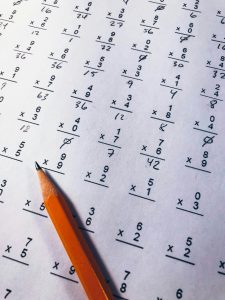10 Fun Math Puzzles to Challenge Your Child’s Mind

Do you want to find a way to make learning enjoyable and engaging for your child? Look no further! In this article, we will explore 10 fun math puzzles that will challenge your child’s mind and help them develop key cognitive skills. Puzzle games for kids are a fantastic way to introduce mathematical concepts, improve problem-solving abilities, and boost confidence. By incorporating these easy puzzles into your child’s routine, you can transform their perception of mathematics from daunting to exciting.
The Benefits of Puzzle Games for Kids
Puzzle games offer numerous benefits for the development of your child’s mind. They encourage critical thinking, improve problem-solving skills, and enhance memory retention. When children engage in puzzle solving, they learn to analyze patterns, make connections between different elements, and think logically. Additionally, these games help improve concentration and attention span, as they require focused effort. By incorporating puzzle toys into your child’s routine, you create an environment that fosters creativity and imagination while developing their mathematical abilities.
-
The Handshake Problem
The Handshake Problem is a classic math puzzle that challenges your child’s logical thinking. In a meeting with four people, each person shakes hands with every other person once. How many handshakes will occur? This puzzle teaches children about combinations and permutations. By understanding the concept of combinations, they can quickly solve this problem and develop their counting skills.
-
The Apple Riddle
The Apple Riddle is a simple but effective way to introduce subtraction to your child. If there are four apples and you take away three, how many apples do you have? This puzzle helps children grasp the concept of subtraction and develop their basic arithmetic skills. Encourage your child to think critically and come up with the correct answer.
-
The Age Puzzle
The Age Puzzle challenges your child’s ability to solve complex word problems. When Cavin was six years old, his brother Mike was half his age. If Cavin is now forty years old, how old will Mike be? This puzzle requires children to understand the relationship between ages and use deductive reasoning to arrive at the solution. It helps develop their mathematical reasoning abilities and encourages them to think logically.
-
Magic Square Challenge
The Magic Square Challenge is an exciting puzzle that enhances your child’s problem-solving skills and logical thinking. It involves filling in the blanks of a square so that each row, column, and diagonal adds up to the same number. By using numbers one through nine without repetition, your child can solve this puzzle and explore patterns. The Magic Square Challenge introduces them to algebraic thinking and improves their number sense.
-
Sequence Puzzle
The Sequence Puzzle is a great way to enhance your child’s ability to recognize patterns. By filling in the missing numbers in a sequence, they learn about numerical patterns and develop their critical thinking skills. For example, if the sequence is 4, 8, 12, __, 20, __, 28, the missing numbers are 16 and 24. This puzzle empowers children to make connections between different elements in a sequence and think creatively.
-
The Triangle Riddle
The Triangle Riddle challenges your child’s ability to think outside the box. What should you place between the numbers 3 and 4 to make it bigger than 3 but smaller than 4? The answer is a decimal point (3.4). This puzzle encourages children to think creatively and consider alternative solutions. It helps develop their problem-solving abilities and teaches them that there can be multiple correct answers.
-
The Weight Problem
The Weight Problem is a puzzle that introduces your child to the concept of ratio and proportion. Susan weighs half as much as Kate, and Brian weighs three times Susan’s weight. If their total weight is 720 pounds, how much does each person weigh? By setting up equations and solving them, your child can determine the weights of Susan, Kate, and Brian. This puzzle enhances their understanding of mathematical relationships and improves their algebraic thinking.
-
Number Triangle
The Number Triangle puzzle is an excellent way to develop your child’s number sense and problem-solving skills. By placing numbers from one to nine in the blank spaces of a triangle, they need to ensure that the sum of the numbers on each side is equal. This puzzle challenges children to think critically, analyze patterns, and make connections between different elements. It enhances their spatial awareness and logical thinking.
-
The Dot Connection
The Dot Connection puzzle stimulates your child’s spatial reasoning skills. By connecting all nine dots arranged in a square using only four straight lines without lifting their pencil, they learn to think outside the box and explore creative solutions. This puzzle encourages children to overcome preconceived limitations and develop innovative problem-solving techniques.
-
The Kakuro Puzzle
The Kakuro puzzle is a crossword-like numerical puzzle that challenges children’s addition skills and logical thinking. In a Kakuro puzzle, each “word” must add up to the number provided in the clue.
For example, if a clue states that a word should add up to 10, it could be composed of numbers such as 1 + 9 or 2 + 8.
These puzzles are an excellent way to improve children’s mental math abilities and enhance their problem-solving skills. By analyzing the given clues and applying addition principles, children learn to decode number sequences and find the correct combinations.
Math puzzles offer an enjoyable and effective way to challenge your child’s mind and develop their mathematical skills. By incorporating easy puzzles into their routine, you can enhance their logical thinking, problem-solving abilities, and critical reasoning skills. Puzzle games for kids provide a stimulating and engaging environment that fosters creativity and imagination while building a strong foundation in mathematics.
If you’re looking for a comprehensive program that combines the benefits of math puzzles with expert guidance, SIP Abacus offers world-class skill development programs designed to unlock the mental potential of children. Their structured curriculum, interactive software, and small class sizes ensure personalized attention and effective learning. Studies have shown that children who complete the SIP Abacus program perform significantly better in math and reading at school, giving them a competitive edge. With SIP Abacus, you can give your child a head start in their mathematical journey.
So, embrace the power of math puzzles, engage your child’s mind, and watch them excel in mathematics with confidence and enthusiasm!



